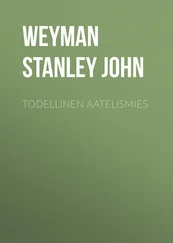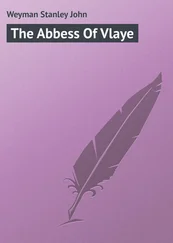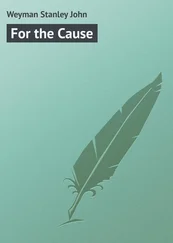Stanley Weyman - The Red Cockade
Здесь есть возможность читать онлайн «Stanley Weyman - The Red Cockade» — ознакомительный отрывок электронной книги совершенно бесплатно, а после прочтения отрывка купить полную версию. В некоторых случаях можно слушать аудио, скачать через торрент в формате fb2 и присутствует краткое содержание. Жанр: foreign_prose, на английском языке. Описание произведения, (предисловие) а так же отзывы посетителей доступны на портале библиотеки ЛибКат.
- Название:The Red Cockade
- Автор:
- Жанр:
- Год:неизвестен
- ISBN:нет данных
- Рейтинг книги:4 / 5. Голосов: 1
-
Избранное:Добавить в избранное
- Отзывы:
-
Ваша оценка:
- 80
- 1
- 2
- 3
- 4
- 5
The Red Cockade: краткое содержание, описание и аннотация
Предлагаем к чтению аннотацию, описание, краткое содержание или предисловие (зависит от того, что написал сам автор книги «The Red Cockade»). Если вы не нашли необходимую информацию о книге — напишите в комментариях, мы постараемся отыскать её.
The Red Cockade — читать онлайн ознакомительный отрывок
Ниже представлен текст книги, разбитый по страницам. Система сохранения места последней прочитанной страницы, позволяет с удобством читать онлайн бесплатно книгу «The Red Cockade», без необходимости каждый раз заново искать на чём Вы остановились. Поставьте закладку, и сможете в любой момент перейти на страницу, на которой закончили чтение.
Интервал:
Закладка:
But St. Alais was not the man to be long wanting to his part, nor one to abdicate of his free will a leadership which vigour and audacity had secured for him. He sprang to his feet again, and in an impassioned harangue called upon the Assembly to remember the Fronde.
"As Paris was then, Paris is now!" he cried. "Fickle and seditious, to be won by no gifts, but always to be overcome by famine. Best assured that the fat bourgeois will not long do without the white bread of Gonesse, nor the tippler without the white wine of Arbois! Cut these off, the mad will grow sane, and the traitor loyal. Their National Guards, and their Badges, and their Mayors, and their General? Do you think that these will long avail against the forces of order, of loyalty, against the King, the nobility, the clergy, against France? No, gentlemen, it is impossible," he continued, looking round him with warmth. "Paris would have deposed the great Henry and exiled Mazarin; but in the result it licked their shoes. It will be so again, only we must stand together, we must be firm. We must see that these disorders spread no farther. It is the King's to govern, and the people's to obey. It has been so, and it will be so to the end!"
His words were not many, but they were timely and vigorous; and they served to reassure the Assembly. All that large majority, which in every gathering of men has no more imagination than serves to paint the future in the colours of the past, found his arguments perfectly convincing; while the few who saw more clearly, and by the light of instinct, or cold reason, discerned that the state of France had no precedent in its history, felt, nevertheless, the infection of his confidence. A universal shout of applause greeted his last sentence, and, amid tumultuous cries, the concourse, which had remained on its feet, poured into the gangways, and made for the door; a desire to see and hear what was going forward moving all to get out as quickly as possible, though it was not likely that more could be learned than was already known.
I shared this feeling myself, and, forgetting in the excitement of the moment my part in the day's debate, I pressed to the door. The Bastille fallen? The Governor killed? Paris in the hands of the mob? Such tidings were enough to set the brain in a whirl, and breed forgetfulness of nearer matters. Others, in the preoccupation of the moment, seemed to be equally oblivious, and I forced my way out with the rest.
But in the doorway I happened, by a little clumsiness, to touch one of the Harincourts. He turned his head, saw who it was had touched him, and tried to stop. The pressure was too great, however, and he was borne on in front of me, struggling and muttering something I could not hear. I guessed what it was, however, by the manner in which others, abreast of him, and as helpless, turned their heads and sneered at me; and I was considering how I could best encounter what was to come, when the sight which met our gaze, as we at last issued from the narrow passage and faced the market-place-two steps below us-drove their existence for a moment from my mind.
CHAPTER IV.
L'AMI DU PEUPLE
There were others who stood also; impressed by a sight which, in the light of the news we had just heard, that astonishing, that amazing news, seemed to have especial significance. We had not yet grown accustomed in France to crowds. For centuries the one man, the individual, King, Cardinal, Noble, or Bishop, had stood forward, and the many, the multitude, had melted away under his eye; had bowed and passed.
But here, within our view, rose the cold lowering dawn of a new day. Perhaps, if we had not heard what we had heard-that news, I mean-or if the people had not heard it, the effect on us, the action on their part, might have been different. As it was, the crowd that faced us in the Square as we came out, the great crowd that faced us and stretched from wall to wall, silent, vigilant, menacing, showed not a sign of flinching; and we did. We stood astonished, each halting as he came out, and looking, and then consulting his neighbour's eyes to learn what he thought.
We had over our heads the great Cathedral, from the shadow of which we issued. We had among us many who had been wont to see a hundred peasants tremble at their frown. But in a moment, in a twinkling, as if that news from Paris had shaken the foundations of Society, we found these things in question. The crowd in the Square did not tremble. In a silence that was grimmer than howling it gave back look for look. Nor only that; but as we issued, they made no way for us, and those of the Assembly who had already gone down, had to walk along the skirts of the press to get to the inn. We who came later saw this, and it had its weight with us. We were Nobles of the province; but we were only two hundred, and between us and the Trois Rois, between us and our horses and servants, stretched this line of gloomy faces, these thousands of silent men.
No wonder that the sight, and something that underlay the sight, diverted my mind for a moment from M. Harincourt and his purpose, and that I looked abroad; while he, too, stood gaping and frowning, and forgot me. Perforce we had to go down; one by one reluctantly, a meagre string winding across the face of the crowd; sullen defiance on one side, scorn on the other. In Cahors it came to be remembered as the first triumph of the people, the first step in the degradation of the privileged. A word had brought it about. A word, the Bastille fallen , had combined the floating groups, and formed of them this which we saw-the people.
Under such circumstances it needed only the slightest spark to bring about an explosion; and that was presently supplied. M. de Gontaut, a tall, thin, old man, who could remember the early days of the late King, walked a little way in front of me. He was lame, and used a cane, and as a rule a servant's arm. This morning, the lackey was not forthcoming, and he felt the inconvenience of skirting instead of crossing the square. Nevertheless he was not foolish enough to thrust himself into the crowd; and all might have gone well, if a rogue in the front rank of the throng had not, perhaps by accident, tripped up the cane with his foot. M. le Baron turned in a flash, every hair of his eyebrows on end, and struck the fellow with his stick.
"Stand back, rascal!" he cried, trembling, and threatening to repeat the blow. "If I had you, I would soon-"
The man spat at him.
M. de Gontaut uttered an oath, and in ungovernable rage struck the wretch two or three blows-how many I could not see, though I was only a few paces behind. Apparently the man did not strike back, but shrank, cowed by the old noble's fury. But those behind flung him forward, with cries of "Shame! A bas la Noblesse! " and he fell against M. de Gontaut. In a moment the Baron was on the ground.
It was so quickly done that only those in the immediate neighbourhood, St. Alais, the Harincourts, and myself, saw the fall. Probably the mob meant no great harm; they had not yet lost all reverence. But at the time, with the tale of De Launay in my ears, and my imagination inflamed, I thought that they intended M. de Gontaut's death, and as I saw his old head fall, I sprang forward to protect him.
St. Alais was before me, however. Bounding forward, with rage not less than Gontaut's, he hurled the aggressor back with a blow which sent him into the arms of his supporters. Then dragging M. de Gontaut to his feet, the Marquis whipped out his sword, and darting the bright point hither and thither with the skill of a practised fencer, in a twinkling he cleared a space round him, and made the nearest give back with shrieks and curses.
Unfortunately he touched one man; the fellow was not hurt, but at the prick he sank down screaming, and in a second the mood of the crowd changed. Shrieks, half-playful, gave way to a howl of rage. Some one flung a stick, which struck the Marquis on the chest, and for a moment stopped him. The next instant he sprang at the man who had thrown it, and would have run him through, but the fellow fled, and the crowd, with a yell of triumph, closed over his path. This stopped St. Alais in mid course, and left him only the choice between retreating, or wounding people who were innocent.
Читать дальшеИнтервал:
Закладка:
Похожие книги на «The Red Cockade»
Представляем Вашему вниманию похожие книги на «The Red Cockade» списком для выбора. Мы отобрали схожую по названию и смыслу литературу в надежде предоставить читателям больше вариантов отыскать новые, интересные, ещё непрочитанные произведения.
Обсуждение, отзывы о книге «The Red Cockade» и просто собственные мнения читателей. Оставьте ваши комментарии, напишите, что Вы думаете о произведении, его смысле или главных героях. Укажите что конкретно понравилось, а что нет, и почему Вы так считаете.












